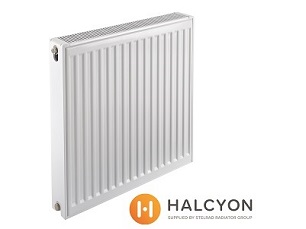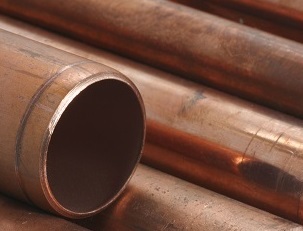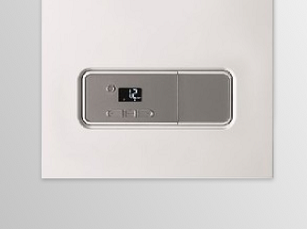 Free delivery on orders over £75 ex VAT
Free delivery on orders over £75 ex VAT Free click & collect from branches nationwide
Free click & collect from branches nationwidet’s no secret that renewable energy is here to stay. Last year, for a record 137 days, renewable energy sources provided more electricity to UK homes and businesses than fossil fuels. As homeowners and businesses make a move towards renewable sources, we want to help you make the transition to becoming an accredited renewable energy engineer.
Fossil fuels have been our dominant energy source since the industrial revolution but – thanks in part to the government’s Domestic Renewable Heat Incentive (RHI) scheme, which has so far ,accredited over 74,000 new systems − this figure is set to rise year on year.

What is MCS training, and why is it important?
As we continue to make great strides towards using renewable energy sources, MCS installers will be in greater demand. Stuart Hawthorn, City Plumbing’s Technical Sales Manager for Scotland notes that “we have seen an interest in renewable energy growing rapidly since the latter half of 2019. Not only are people taking action to cut their own carbon footprints, the government are now driving a change to electrification and low carbon, which will change everything from the cars we drive to the way we heat our homes".
The Microgeneration Certification Scheme (MCS) is an internationally recognised quality assurance scheme, which ensures energy engineers install products to the highest standards.
By obtaining an MCS certificate, you’re demonstrating to your customers that you have achieved, and therefore operate to the highest industry standards and comply with the regulations required by the scheme. It’s worth noting that in order for consumers to benefit from the financial incentives offered by the RHI scheme, only certified MCS installers can carry out the work, and they must use MCS-certified products.
Stuart also points out that “younger installers are now aware that gas and oil boilers will not see them through their careers. The UK government has already stated there will be no fossil fuel heating systems in new-build homes from 2025, and the next big target area to hit is retro-fit. Now is the time for installers to embrace the change and be at the forefront of it rather than being forced to change the business model later.”
How to become a certified renewable energy engineer
In order to hold an MCS accreditation you will need to undertake the appropriate training for your chosen technology (i.e. air source heat pumps, ground source heat pumps, solar thermal, biomass), followed by certification.
The certification process is perhaps the most time consuming, and you will need to ensure you have completed the following:
- Quality Management System (QMS)
- Technical reference documents
- Client records / certificates / documents
- Appropriate equipment and instrumentation
- Record of complaints and complaints procedure
- Training certificates
- Evidence of public liability insurance
- List of building installation work carried out
If you are ready for inspection it will usually take 4-6 weeks for an MCS inspector to come and see you − and you will find out on the day if you have been successful. However, before you can apply for certification you will need to prepare, and this timescale will be dependent on you.
Once you have gained your MCS accreditation you will be audited annually, unless there are complaints about your work, in which case you may find additional ‘surveillance’ is required.
If you are employed as an installer, only your employer needs to hold an MCS certificate. However, if you want to work for yourself as a contractor, your company will need to have an MCS installation certificate.
The most popular types of renewable energy
Air source heat pump (ASHP)
Air source heat pumps use a refrigeration cycle to capture the heat from the outside air, providing heating and hot water to properties through radiators, underfloor heating and cylinders.
Ground source heat pump (GSHP)
Ground source heat pumps work on the same principle as air source heat pumps but capture the heat from the ground, either in horizontal pipe arrays or boreholes. Due to the fairly constant temperature under the surface this form of heating offers slightly higher efficiency but costs more to install.
Solar Photovoltaic (Solar PV)
Solar PV systems convert sunlight directly into energy. Solar PV has been the most common form of renewable energy in recent years.
Biomass boiler
Typically used in commercial and poorly insulated buildings, biomass systems work by burning biological matter like wood pellets, logs, chips and other biological matter and outputting the resulting heat for use in heating systems.
As an accredited MCS installer you will be able to advise your customers on the type of renewable energy source that will best suit their needs, as well as provide a detailed breakdown of the specification and costs of their proposed system − and this is where we come in.
Our in-house Energy Efficiency team are unique in the merchant business as the only dedicated renewables design & estimation team in the UK. With our wealth of experience and ability to offer whole house solutions, we can offer you a variety of services tailored to your projects. Providing you with one point of contact, we can help save you time, hassle, and money. Utilising our expertise and manufacturer access to MCS-accredited products, we can offer you a complete project solution from designing the whole system, to supplying the products to fit the system including radiators and accessories. All our designs are protected by professional indemnity cover, meaning you’ll have complete peace of mind when you choose us to help you with your renewable energy projects.
Want more information about how our Energy Efficiency and Design team can help you? Email us on tpsbs@travisperkins.co.uk or call our helpline on 0800 688 8388 and speak to one of our experts.
Other articles

Introducing Halcyon Compact Radiators
21 Mar 2022 ・ 7 mins

Joining the Debate: Plastic vs Copper Plumbing
03 Mar 2022 ・ 4 mins

Exploring the Glow-Worm Ultimate
03 Mar 2022 ・ 5 mins

